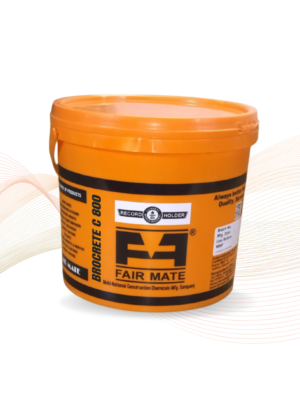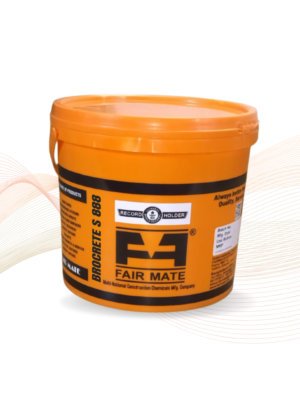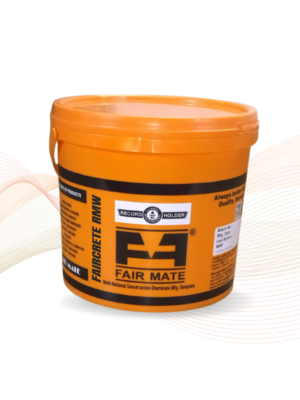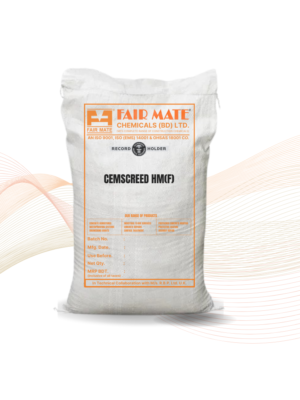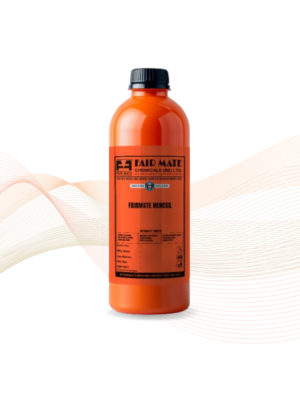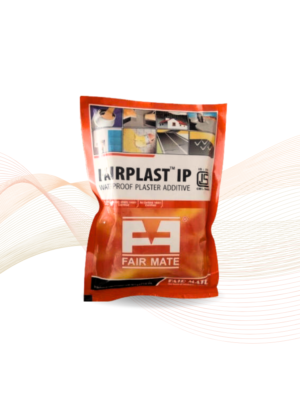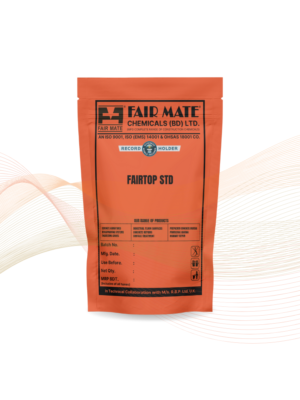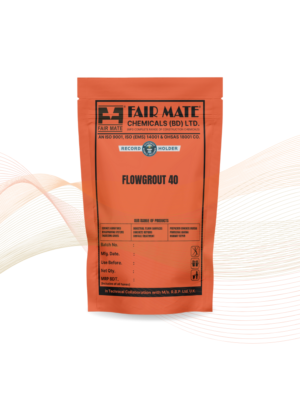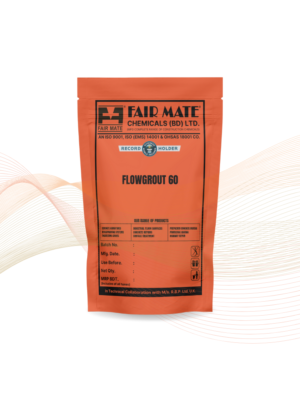Construction Chemical

Construction chemicals are essential components in modern building projects, providing improved durability, performance, and aesthetics to concrete surfaces. These chemicals include curing and sealing treatments, floor hardeners and densifiers, polished concrete systems, and stain protection products, all designed to work in harmony to create safe, resilient, and easy-to-maintain concrete floors. This comprehensive guide will delve into the various types of construction chemicals, their applications, and the benefits they offer, helping you make informed decisions for your next building project.
Section 1: Curing and Sealing Treatments
1.1: Importance of Curing
Curing is a crucial process in concrete construction, involving the maintenance of adequate moisture and temperature conditions in freshly placed concrete for a specified period. This process ensures the proper hydration of cement, leading to the development of the desired strength, durability, and resistance to wear and tear.
1.2: Benefits of Sealing
Sealing treatments protect concrete surfaces from external elements such as water, chemicals, and UV rays, prolonging their lifespan and maintaining their appearance. By sealing the concrete, you reduce the risk of damage from freeze-thaw cycles, deicing chemicals, and other harsh environmental factors. Moreover, sealing treatments can enhance the aesthetic appeal of concrete surfaces by providing a glossy or matte finish, depending on the desired look.
1.3: Types of Curing and Sealing Products
There are various curing and sealing products available on the market, each catering to specific needs and preferences. Some common types include:
Acrylic sealers: These are water- or solvent-based sealers that provide a durable, UV-resistant finish.
Epoxy sealers: These offer excellent chemical and abrasion resistance, making them ideal for industrial settings.
Polyurethane sealers: These sealers provide a high-gloss finish and excellent resistance to chemicals, abrasion, and UV rays.
Section 2: Floor Hardeners and Densifiers
2.1: Understanding Floor Hardeners
Floor hardeners are applied to concrete surfaces to improve their resistance to abrasion, impact, and other forms of wear. These products work by penetrating the concrete and reacting with the calcium hydroxide present, forming a dense, hard surface that is less susceptible to damage.
2.2: Types of Floor Hardeners
Floor hardeners can be categorized into two main types:
Dry-shake hardeners: These are applied in powder form to the surface of fresh concrete and then troweled into the surface. They typically consist of cement, aggregates, and other additives that enhance the performance of the concrete.
Liquid hardeners: These are applied to the surface of hardened concrete and penetrate the material to react with the calcium hydroxide, forming a denser, more durable surface.
2.3: Densifiers Explained
Densifiers are liquid chemicals that penetrate the concrete surface and react with the calcium hydroxide to create calcium silicate hydrate (CSH), which fills the pores within the concrete, making it denser and more resistant to wear and tear. Common densifiers include sodium, potassium, and lithium silicate compounds.
Section 3: Concrete Polishing Systems
3.1: The Appeal of Concrete Polishing
concrete polishing systems floors have become increasingly popular in recent years, offering a visually appealing, low-maintenance alternative to traditional flooring options like tile, carpet, or hardwood. Polished concrete provides a smooth, reflective surface that can be customized with stains, dyes, or other decorative treatments to create a unique, aesthetically pleasing appearance.
3.2: The Polishing Process
The process of polishing concrete typically involves several steps:
Grinding: The concrete surface is ground down using progressively finer grits of diamond-impregnated abrasive tools, removing any imperfections and creating a smooth, even finish.
Honing: The surface is further refined using finer grit abrasives, resulting in a tighter, more polished appearance.
Densification: A liquid densifier is applied to the concrete surface, filling the pores and increasing the density of the material, making it more resistant to wear and tear.
Polishing: The concrete is polished to the desired level of shine using specialized polishing pads or discs.
3.3: Maintenance Considerations
Polished concrete floors are relatively low-maintenance, requiring only routine sweeping and mopping to keep them clean and free of debris. However, they may need periodic re-polishing or re-sealing to maintain their appearance and performance, depending on the level of traffic and wear they experience.
Section 4: Stain Protection Products
4.1: Importance of Stain Resistance
Concrete surfaces, particularly in commercial and industrial settings, are often subject to spills and stains from various substances, including oil, grease, chemicals, and food. Stain protection products help to prevent these substances from penetrating the surface of the concrete, making it easier to clean and maintain.
4.2: Types of Stain Protection Products
There are several types of stain protection products available, including:
Penetrating sealers: These products penetrate the concrete surface, forming a protective barrier that keeps stains from seeping into the material.
Topical coatings: These form a thin, protective layer on the surface of the concrete, repelling stains and making them easier to clean up.
Reactive treatments: These products react with the concrete surface, altering its chemistry to make it more resistant to staining.
Section 5: Project Gallery: Inspiring Examples of Construction Chemical Applications
A project gallery showcasing the use of construction chemicals in various well-known projects can serve as a source of inspiration for architects, engineers, and builders. By browsing through these examples, professionals can gain insight into the potential applications of construction chemicals and the benefits they offer in terms of durability, performance, and aesthetics.
5.1: EmeryTop 400
EmeryTop 400 is a high-performance concrete floor topping specifically designed for environments that require exceptional abrasion, impact, and chemical resistance. This product has been used in transfer station tipping floors and heavy traffic industrial floors, earning a reputation as the \\\”World\\\’s Toughest Floor.\\\”
5.2: FGS Permashine
FGS Permashine is a polished concrete flooring system that combines beauty, durability, and environmental-friendliness. This system requires no harsh abrasives, solvents, or waxes for cleaning, making it an ideal choice for those seeking a sustainable, low-maintenance flooring option.
Section 6: Installation Guides and Resources
Proper installation of construction chemicals is crucial for ensuring their effectiveness and longevity. Specified guidelines and instructions for curing and sealing, epoxy grout, hardener installation, grouting, and seal hard installation can be found through various resources, such as manufacturer websites, industry publications, and professional associations.
Section 7: Consultation and Support
When seeking more information on construction chemicals and their applications, it is essential to consult with industry experts who can provide personalized guidance and recommendations. Many manufacturers offer chat, call, or email support, allowing you to connect with knowledgeable professionals who can address your questions and concerns.
Section 8: Choosing the Right Products for Your Project
Selecting the appropriate construction chemicals for your project depends on a variety of factors, including the desired performance characteristics, environmental conditions, and aesthetic preferences. By considering these elements and consulting with industry experts, you can ensure that you choose the right products to meet your specific needs and achieve the best possible results.
Section 9: The Future of Construction Chemicals
As the construction industry continues to evolve, so too will the development of construction chemicals. Advances in materials science, nanotechnology, and other fields are likely to lead to the creation of new products with improved performance characteristics and a reduced environmental impact. By staying informed of these developments and embracing innovative solutions, professionals in the construction industry can continue to push the boundaries of what is possible with concrete construction.
Construction chemical manufacturer
In the realm of modern construction, the role of construction chemical manufacturers is paramount. These manufacturers are the driving force behind the development and production of innovative solutions that enhance the quality, durability, and performance of construction projects.
Construction chemical manufacturers are dedicated to researching and creating a wide range of specialized chemicals that address various construction challenges. From concrete additives that improve strength and workability to adhesives and sealants that provide robust bonding and protection, these manufacturers offer a diverse array of products tailored to the needs of the industry.
Manufacturers in this field employ cutting-edge technology and adhere to stringent quality standards to produce construction chemicals that stand the test of time. Their contributions extend to sustainable construction practices, as they often formulate products that are eco-friendly and minimize the environmental impact.
By collaborating closely with engineers, architects, and builders, construction chemical manufacturers play a pivotal role in shaping the course of construction projects. They provide expertise, technical support, and customized solutions that ensure the successful implementation of their products.
In essence, construction chemical manufacturers are at the forefront of transforming construction landscapes. Through their unwavering commitment to innovation and quality, they empower the industry to build structures that are not only sturdy and resilient but also environmentally conscious.
Construction chemical suppliers
When it comes to constructing durable, long-lasting, and structurally sound buildings, the role of construction chemicals cannot be overlooked. Construction chemical suppliers play a pivotal role in providing the necessary materials that enhance the overall quality and performance of construction projects.
These suppliers offer a wide range of construction chemicals that cater to various aspects of building construction. From concrete admixtures that improve the strength and workability of concrete to waterproofing solutions that protect structures from moisture damage, these chemicals are essential for ensuring the longevity of buildings.
Construction chemical suppliers ensure that builders and contractors have access to innovative products that meet the highest industry standards. They provide solutions for enhancing concrete durability, preventing corrosion in reinforced steel, and even improving the aesthetics of the final product through coatings and finishes.
Choosing the right construction chemical supplier is crucial for the success of any construction project. Reputable suppliers not only offer high-quality products but also provide technical support and guidance in selecting the most appropriate chemicals for specific applications.
In conclusion, construction chemical suppliers play a vital role in the construction industry by providing the essential materials needed to achieve strong, durable, and aesthetically pleasing structures. Their expertise and products contribute significantly to the overall quality and longevity of modern buildings.
Our Products
Adhesive and Sealant
-
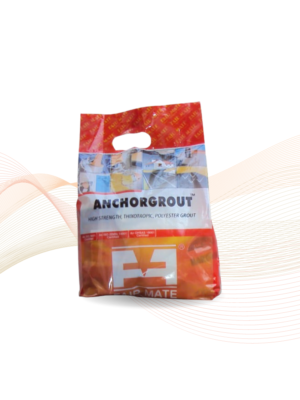

Anchorgrout
1,200.00৳ -
SALE!
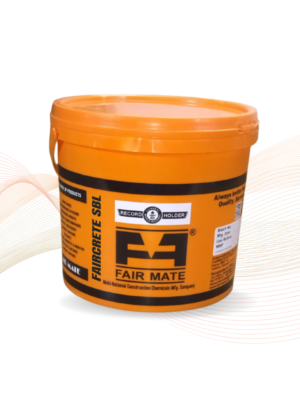

Faircrete SB(L)
450.00৳Original price was: 450.00৳.400.00৳Current price is: 400.00৳. -
SALE!
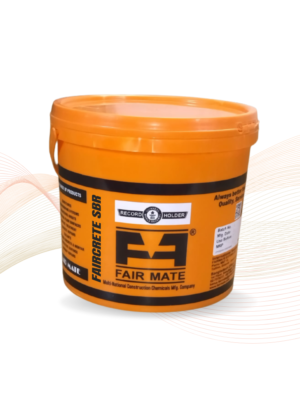

Faircrete SBR
450.00৳Original price was: 450.00৳.400.00৳Current price is: 400.00৳. -
SALE!
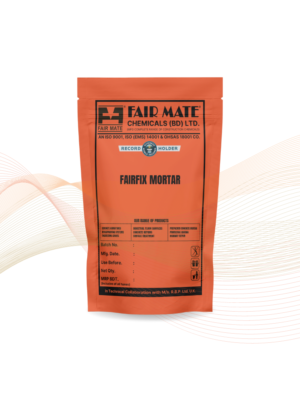

Fairfix Mortar
750.00৳Original price was: 750.00৳.650.00৳Current price is: 650.00৳. -
SALE!
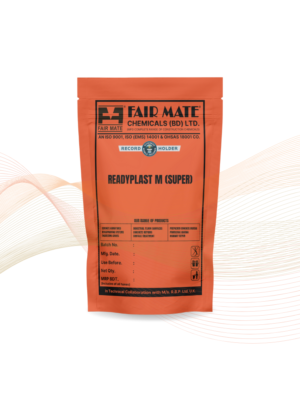

Readyplast M Super
1,000.00৳Original price was: 1,000.00৳.950.00৳Current price is: 950.00৳.
-
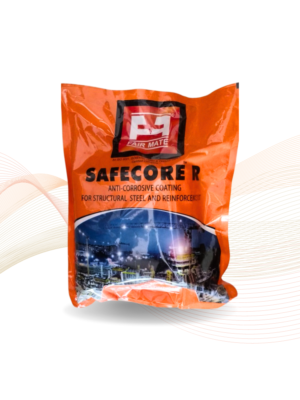

Safecore R
2,000.00৳ -
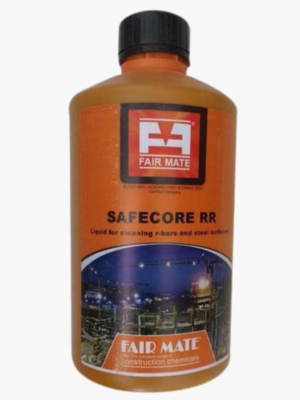
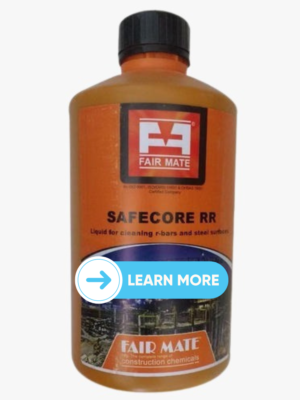
Safecore RR
480.00৳ – 9,600.00৳Select options This product has multiple variants. The options may be chosen on the product page -
SALE!


Water Guard A
3,500.00৳Original price was: 3,500.00৳.3,200.00৳Current price is: 3,200.00৳. -
SALE!
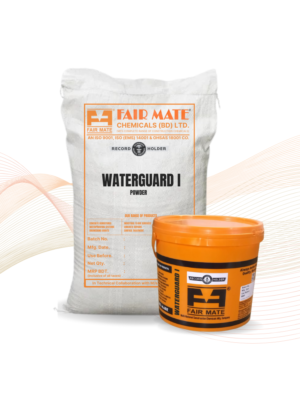

Water Guard I
4,500.00৳Original price was: 4,500.00৳.4,200.00৳Current price is: 4,200.00৳. -
SALE!


Water Guard Liquid Membrane
14,500.00৳Original price was: 14,500.00৳.14,000.00৳Current price is: 14,000.00৳.

